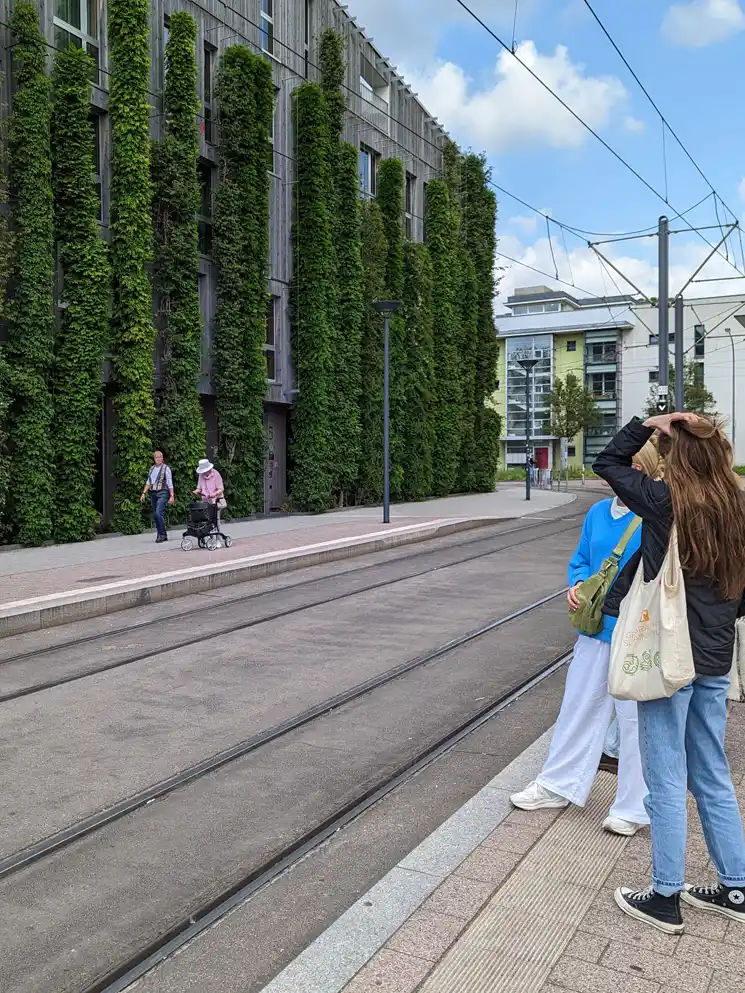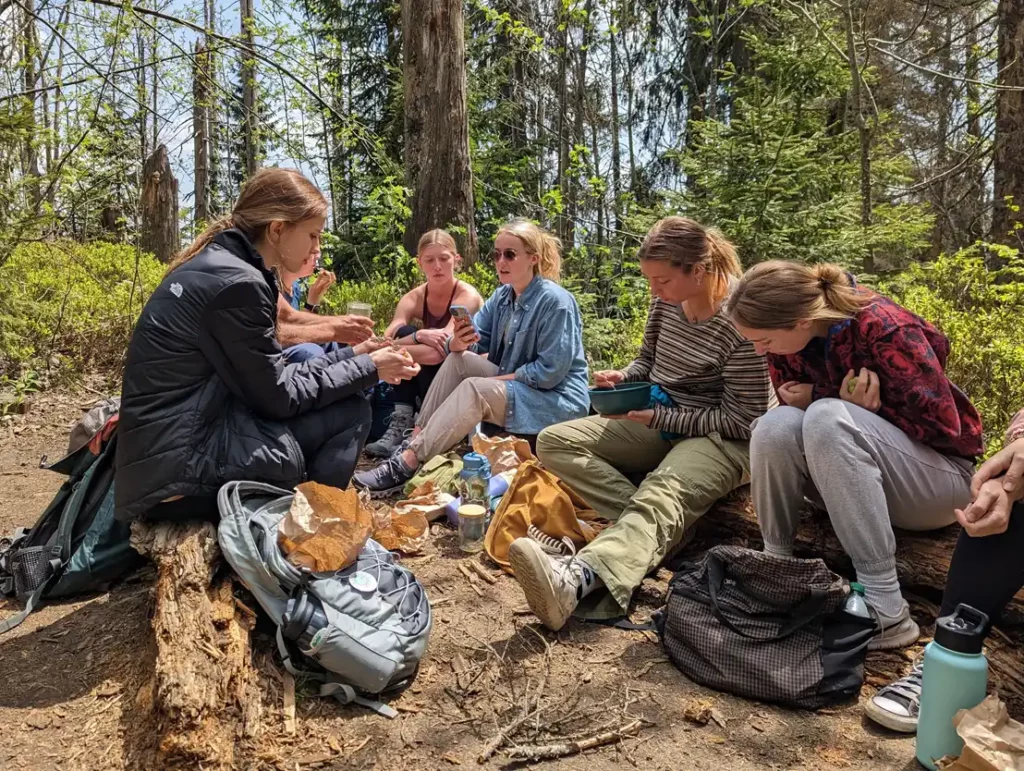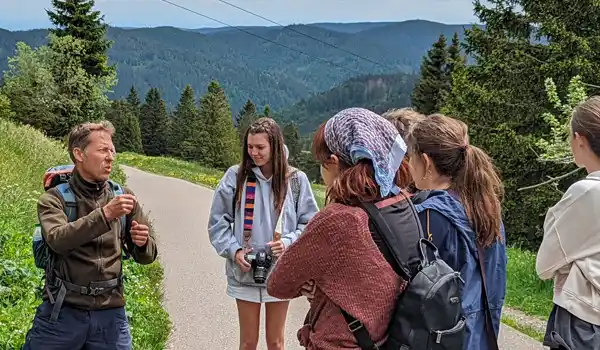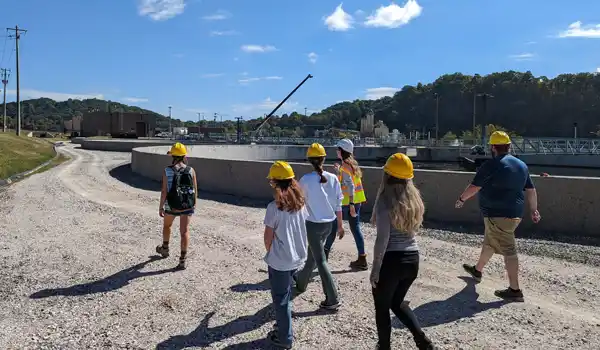

About Sustainability at UT
Sustainability engages students in a systems approach to understanding the interconnections between society and the environment. The Sustainability Program provides students with an overview while allowing students to focus on areas of interest such as environmental sustainability, sustainable development, or sustainability and policy.
Experiential Learning
Experiential learning is a core goal of the sustainability program. Students take service-learning and field methods courses as part of the curriculum and are encouraged to engage in sustainability initiatives on campus and in the surrounding community.
Study Abroad
Students can engage in a sustainability abroad by taking GEOG 491 – Urban Sustainability. A May Mini-Term course offered in Freiburg, Germany.
For more information contact Tracey Norrell at thayes7@vols.utk.edu.
The Office of Sustainability
The Office of Sustainability has an extensive website which showcases campus sustainability initiatives and events and curates a list of current sustainability-related job postings.
AVAILABLE PROGRAMS

Sustainability Major, BA
The sustainability program engages students in a systems approach to solving pressing issues at the intersection of society, economics, and the environment. Topics studied include climate change, land-use change and biodiversity, water resources, natural resource management, and sustainable development at the local and global scales. Students develop a foundational knowledge of natural and social science with a skill set in geographic information systems, data analysis, communication, policy, and development. Experiential learning is a core to the sustainability major. Students take service-learning and field methods courses as part of the curriculum and are encouraged to engage in sustainability initiatives on campus and in the surrounding community.

Sustainability Major, BA – Public Policy Concentration
Students pursuing the public policy concentration will study 4 lower-division and 12 upper-division courses in public policy in partnership with the Baker School for Public Policy and Public Affairs. The concentration will provide students the opportunity to learn how laws, guidelines, and actions are decided and taken by governments in order to work in favor of the public. Public policy guides which laws are passed, where funding goes, and which topics concern issues important to sustainability. Students will learn the foundation of public policy in the context of the broader sustainability degree.

Sustainability Major, BA – Supply Chain Management Concentration
The concentration in Supply Chain Management allows students to study at the intersection of commerce and environmental responsibility. The concentration is a collaboration between the Departments of Geography & Sustainability, Agriculture and Natural Resource Economics, and Supply Chain Management. Sustainability, BA students will have 11 credit hours with a concentration in Supply Chain Management. Three of those credit hours include a capstone course focusing on applying Sustainable Supply Chain Management methodologies. Students will equip themselves with the skills to innovate sustainable practices from procurement to distribution. Students will learn strategies for reducing carbon footprints, enhancing ethical sourcing, and optimizing resource efficiency.

Sustainability Minor
The Sustainability minor provides students with the opportunity to add the timely and important study of sustainability to accompany their major. Students pursuing a minor in sustainability will gain foundational knowledge from the course Sustainability – Principles and Practices followed by 12 additional upper-divisional credit hours of their choosing among the subfields of Sustainability and Society, Sustainability Policy and Development, and Sustainability and the Environment.

Urban Sustainability Study Abroad in Freiburg
Urban Sustainability in Freiburg, Germany: This study abroad program is offered during the summer in collaboration with Programs Abroad. Students will study multiple systems of urban sustainability such as food, water, energy, housing, and transportation in the context of one of the world’s “green cities.”
Sustainability Faculty

Derek Alderman
Chancellor’s Professor and Immediate Past President, Faculty Senate
Specialties: Cultural and historical geography; geographies of memory, race, tourism; politics of place naming and critical cartography

Hannah Herrero
Associate Professor and Director of Sustainability
Specialties: Remote Sensing, Human-Environment Interactions, Conservation, Savanna Science, Africa, Land Change Science, Physical Geography

Hyun Kim
Professor and Associate Head
Specialties: Transportation, Telecommunications, GIS, Spatial Data Science, Spatial Optimization and Modeling

Nikki Luke
Assistant Professor
Specialties: Urban political ecology, energy, labor, race, gender, social reproduction, environmental and energy justice, urbanization.

Madhuri Sharma
Professor
Specialties: Racial/ethnic diversity, segregation, and contemporary housing market; Gender and Racial/ethnic economy and disparity; Gentrification, new urbanism and placemaking; Income divide, poverty, and geography of development; Informal economy and the geographies

Nicholas Sokol
Lecturer
Specialties: Applied Climatology, Data Science, Environmental Modeling, Food, Energy, and Water (FEW)

Jack Swab
Assistant Professor
Specialties: Critical Cartography/GIS, Health Geography, Geographic Thought
Publication Board
Annals of the Association of American Geographers
Harden, C.P., 2012. Framing and Reframing Questions of Human–Environment Interactions. Annals of the Association of American Geographers 102, 737-747.
Annals of the Association of American Geographers
Harden, C.P., Hartsig, J., Farley, K.A., Lee, J., Bremer, L.L., 2013. Effects of Land-Use Change on Water in Andean Páramo Grassland Soils. Annals of the Association of American Geographers 103, 375-384.
Water Resources Management
Tran, L.T., O’Neill, R.V., Smith, E.R., Bruins, R.J.F., Harden, C.P., 2013. Application of hierarchy theory to cross-scale hydrological modeling of nutrient loads. Water Resources Management, 1-17.
Environmental Modelling & Software
Robert N. Stewart, R.N., Purucker, S.T., 2011. An environmental decision support system for spatial assessment and selective remediation. Environmental Modelling & Software 26, 751-760.


